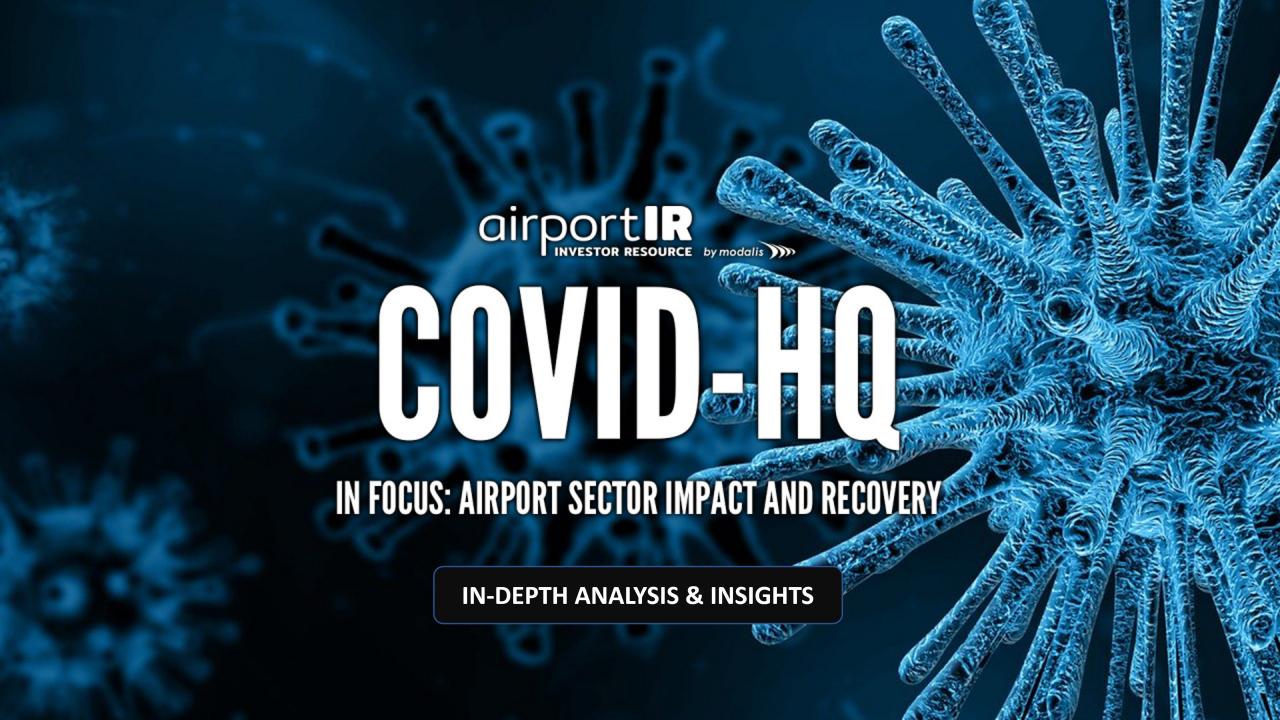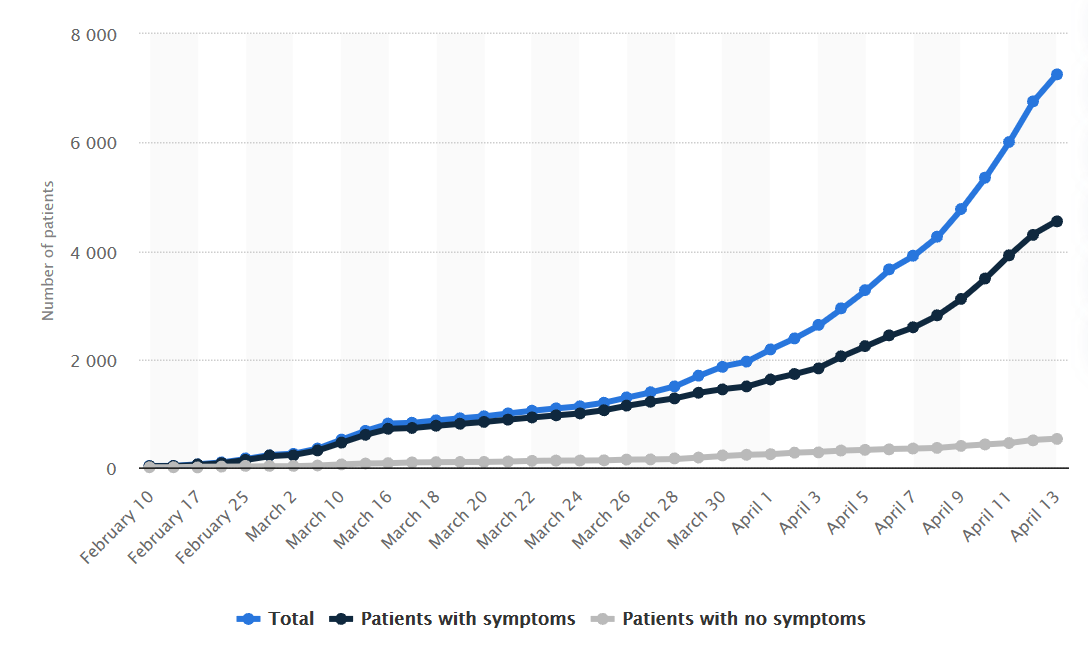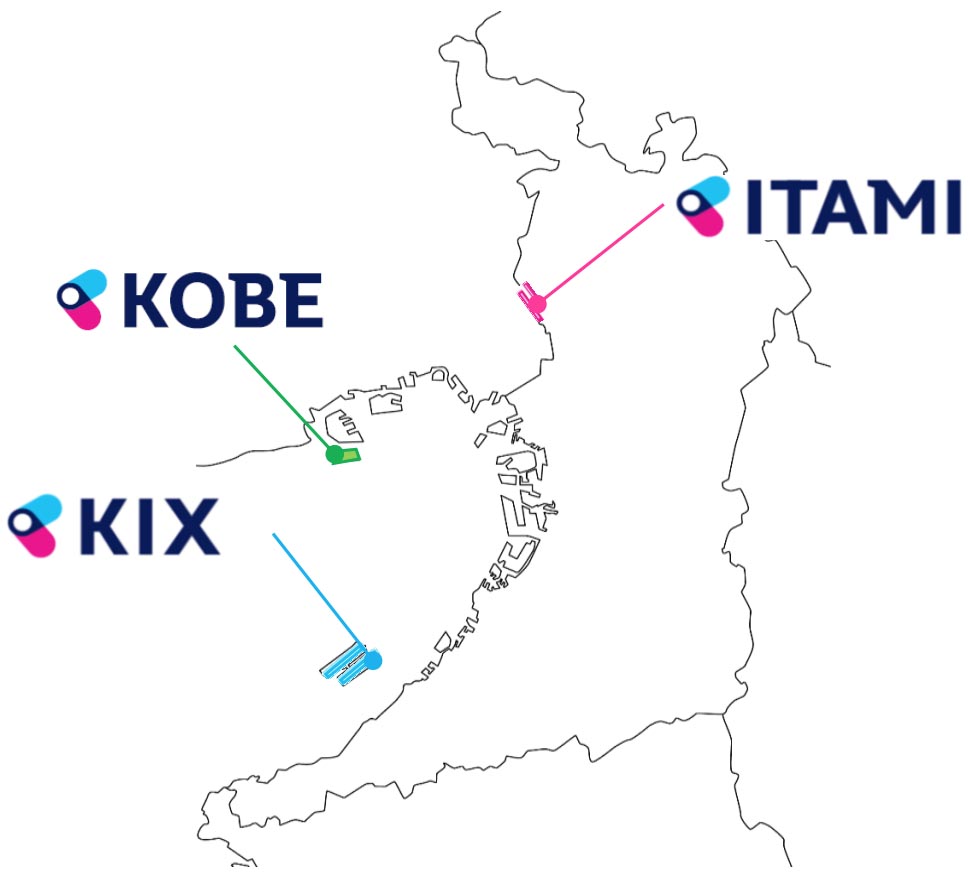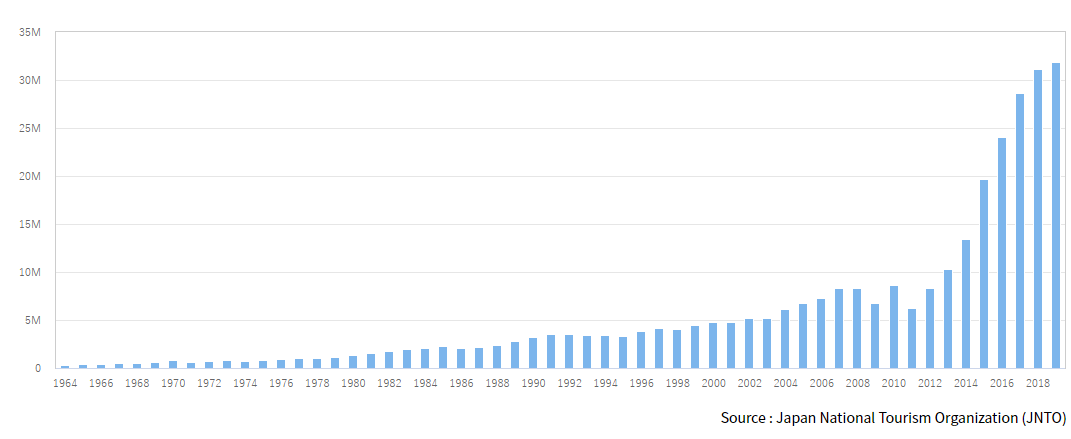COVID-HQ: Japan’s Airport Privatization Program Stopped in its Tracks
Stephane Beaulieu
April 14, 2020

The global aviation sector has been one of the most severely affected by the COVID-19 crisis and Japan’s industry is no exception. As China was busy fighting the epidemic, Japan, perhaps wary of the potential loss of tourism revenues that have become so important for the economy in recent years, was still allowing the mass of Chinese tourists entering Japan for the Chinese New Year holiday. Given the inability of the Japanese authorities to test for the disease, or perhaps for fear of seeing the Tokyo Olympics postponed, data on confirmed cases remained inconsistent and even showed a decrease in the second week of March, until the day after the postponement of the Olympics was announced. The number of cases has been increasing steadily since then and establishing new records every day as testing capacity improves, reaching 7,255 as of April 13.
Graph: Cumulative Number of Patients Diagnosed with COVID-19 in Japan as of April 13, 2020, by State of Health  Source: Statista
Source: Statista
The central government had also been adding new regions daily to its designation of areas subject to the entry ban, a list that, as of April 3rd, included 75 countries from which foreigners having visited there in the last 14 days were being refused entry, effectively resulting in a quasi-complete entry ban for foreigners. Consequently, Kansai Airport saw its international traffic going from 40,000 pax/day to a few hundred with most days since early April recording nominal international traffic. Domestic departures and arrivals also registered a 60% decrease.
Meanwhile, the new management teams of recently privatized Japanese airports are seemingly struggling with the public sector management legacy, (i.e. maintaining maximum staff and facilities in operation) when attempting to rationalize operations to fit the new market reality, causing somewhat of a clash between the old and the new approach to airport management.
Economic policies to support all Japanese companies that have suffered from the effect of the government’s suggested pandemic countermeasures are being implemented by the various levels of government in the form of low interest loans and grants currently focusing on SMEs, but major bailouts for the airline industry and other large corporations are also being prepared and should be announced shortly. Japan has been in the process of privatizing many of its airports for the last five years starting with Kansai (KIX) and Itami (ITM), awarded to the ORIX-VINCI consortium in 2016, followed by Kobe (UKB) in 2017.
Concessions for most large airports have already been allocated but some interesting assets remain to be privatized such as Okinawa (OKA) with its 18m pax/yr and Haneda (HND) with over 87m pax/yr. At the moment, there is no schedule for these assets to be auctioned off, but given their size, it is expected that the competition will be fierce. The great majority of airports that have been privatized to date have shown continued growth over the period since being transferred from the public sector, no doubt driven not only by private sector management but also by the GoJ policy for fly-in regional tourism promotion, which had set a 40m visitors objective by 2020 and 60m by 2030.
The increasing Olympic hype also contributed to Japan being featured as a destination of choice over the last few years, but these dreams have quickly evaporated when the world came to an abrupt halt. The ‘’No international Flight Policy’’ is now expected to be maintained until the end of April and could be extended further as deemed appropriate.
It is difficult to imagine that anyone could have foreseen the scale of the current disturbance, let alone factoring it into in the pricing of the assets that have already been privatized. The difficulties encountered by the new private sectors entities in adapting quickly to the crisis coupled with a loss of revenues of almost 100% for most segments is such that any effort to privatize the remaining assets in the near future will certainly be impacted by this new and highly sensitive risk factor. Reality is that this is likely to result in downward pressure on valuations. It would thus not be surprising to see the Japanese government delay the auctioning of these remaining assets in the hope of minimizing the impact of the pandemic on its privatization program.


